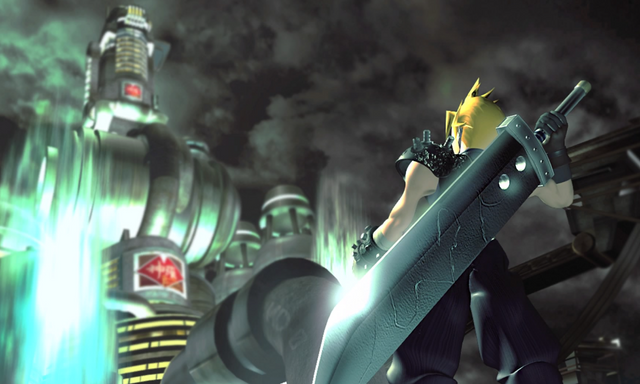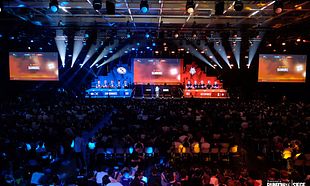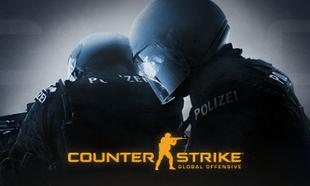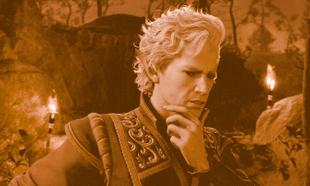The line between cult and mainstream is the great challenge of any RPG, but 'Final Fantasy 7' managed to pull off the impossible: it appealed to long-term fans of the series while also becoming a mainstream hit in its own right.
The oldest game in our retrospective series of articles, along with 'Super Mario 64', it is astounding to realise that a game with the depth and complexity of 'Final Fantasy 7' was released on the PlayStation 1.
As we discussed in our piece on 'Deus Ex', it is near-impossible for a game that had a complex and deep story and gameplay like 'Final Fantasy 7' to attain the same standard in the same era as HD graphics.
In 1997, the graphical quality took a back seat because the game was so jam-packed with memorable characters, hundreds of hours of content, and strong gameplay.
'Final Fantasy 7' famously came on 3 discs back in the day, yet as the video game evolved to DVD, Blu-Ray and later digital methods of distribution, no game in the 'Final Fantasy' series has come within striking distance of matching the brilliance of the series' 1997 outing.
Indeed, when a remake of 'Final Fantasy 7' was released in 2020, it pointedly ended after the end of the first disc, such is the complexity of the game.
It's something of a minor miracle that the original ever managed to fit on the PlayStation 1.
Whenever 'Final Fantasy' is invoked or a new one is announced, the mind instantly turns to the series' 7th entry - and those oh so many afternoons spent racing Chocobos in the Gold Saucer Area.
Head In The Cloud
As alluded to, 'Final Fantasy' was an established franchise by the time the seventh entry rolled around.
The first entry in the series debuted to audiences in its native Japan in 1987, while Western audiences were first introduced to the franchise in 1990.
The series was created by Hironobu Sakaguchi, and had helped establish the franchise as a major seller for the SNES.
By the time production was wrapping up on 1995's 'Chrono Trigger', Sakaguchi had decided to hand the 'Final Fantasy' reins over to his contemporary Yoshinori Kitase.
In the early stages of planning, discussions were ongoing as to whether the game was going to carry on in the traditional 2D style or embrace the burgeoning 3D style that was rapidly becoming the industry standard.
One of the great what-ifs of gaming history is Nintendo offering to team up with Sony to create a CD add-on for the SNES, but Sony ultimately rejected the offer.
Industry legend goes that Nintendo realised they didn't have the technical know-how that Sony did, and after being offered a taste of the gaming life, Sony decided to go it alone.
This fork in the road moment changed gaming history as we know it, and indeed by the time Square were prototyping an early version of 'Final Fantasy 7' on the Nintendo 64, the console simply was not able to handle the technical demands.
Sony's decision to opt for a CD-based system instead of Nintendo's cartridge system has gone down as one of the most influential moments in gaming history, and Square realised that in order to realise their ambitions, they needed to switch to camp Sony.
This historical context is crucial to understanding why 'Final Fantasy 7' caught fire in the way it did.
By the time the game was entering development, the PlayStation had upset the Nintendo-Sega duopoly, and it was the console of choice for developers with auteur ambitions.
As we later saw with 'Metal Gear Solid' in 1999, the PlayStation 1 made the impossible possible, and even early on into the life cycle of the console, Sony's console had stormed into the lead sales-wise.
When European audiences got their hands on 'Final Fantasy 7' in late 1997, the PlayStation was the console to have, and this massive built-in player base was the perfect audience for the most mainstream 'Final Fantasy' yet.
A death in the family
A major part of why 'Final Fantasy 7' struck a chord with mainstream audiences was the ensemble of memorable characters.
Our hero Cloud Strife is a classic hero in the Joseph Campbell sense, that is to say a character you can project yourself onto.
For those unversed in storytelling tropes, Joseph Campbell's 1949 book 'The Hero with a Thousand Faces' is seen as the bible for budding writers who want to create an epic story.
The most famous usage of Campbell's bible is when George Lucas borrowed heavily from the writings to create the story of 'Star Wars', and the character of Luke Skywalker.
Per Campbell, our hero should believe in a lie that is their driving motivation, and when the truth is revealed, it should serve as a moment of character growth.
The trick of 'Final Fantasy 7' is that it gives Cloud 3 lies that serve as moments of character growth.
Cloud believes himself to be a soldier, a clone of the villain Sephiroth, and then tricking himself into believing he is no one of great importance.
The learning moment comes when he realises he is indeed the hero the world needs, and what is crucial is the player is right there with him when he makes this breakthrough.
We've written in this series about how video games are still massively untapped as means of telling stories in a way that film or television can't, and a major part of why 'Final Fantasy 7' caught fire in the way it did was because it was one of the first times gaming showed it wasn't just a hobby for kids - it was capable of telling deep, emotional stories.
If you've gotten this far into the piece, you're probably well aware of the massive mid-game twist that flips the story on its head, but in any case, we're about to give it away.
Discussing this plot point is crucial in establishing the context of why the game was so succesful.
If you somehow haven't played the game in the 25 years of release, we're about to spoil a major plot point.
Go back and play the game, it's great!
With that bit of business out of the way, let's break it down.
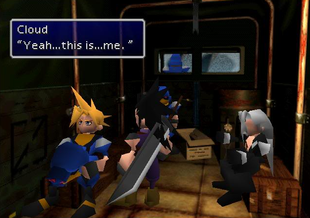
Sephiroth is just an iconic video game villain as Darth Vader is to the world of film, and he serves as a spectre in the plot of 'Final Fantasy 7'.
You are always aware of his presence, and he looms large over the story at all times.
You are granted a false sense of security by your core party members, but that all comes crashing down with the death of Aerith.
The death of Aerith is a watershed moment for gaming because it is one part shocking, one part heart-wrenching, and one part rage-inducing.
This cocktail of emotions represents the moment gaming took the kid's gloves off and became an art form.
Prior to 'Final Fantasy 7', developers Square played around with the concept of mortality with the sublime 'Chrono Trigger', and it was there that they gained the confidence to tackle the heavier themes like mortality, death and revenge.
Speaking to Edge magazine in 2003, Tetsuya Nomura, the character designer for both Sephiroth and Aerith said he wanted the death of latter to be meaningful.
"At the time we were designing the game I was frustrated with the perennial dramatic cliché where the protagonist loves someone very much and so has to sacrifice himself and die in a dramatic fashion in order to express that love. We found this was the case in both games and movies, both eastern and western."
"But I wanted to say something different, something realistic. I mean is it right to set such an example to people?”
The meshing of Japanese sensibilities combined with Western action made for an experience that took players by surprise, and 25 years later, 'Final Fantasy 7' is still held up as a landmark moment in gaming history.
'Final Fantasy 7' is such a remarkable triumph of storytelling that we've barely had time to mention the gameplay.
The RPG has long been a favourite genre of the gamer, and as the 'Pokemon' craze of the late 1990s showed, there was indeed quite an appetite for turn-based combat.
What 'Final Fantasy 7' does fantastically well is the sense of escalation.
With the game coming on 3 discs, playing through the game does feel like reading an epic novel.
From barely coming out of fights in the early part of the game to having the confidence to beat Sephiroth, the game is excellently paced and makes each and every player feel like the hero.
What kept people coming back to the game for all these years is the sheer depth of activities involved.
You could spend time trying to finish the story, or you could mess around in the Gold Saucer or race Chocobos.
The game rewards multiple playthroughs, and it is impossible to see everything the game has to offer in one sitting, with certain characters having different things to say.
These are all features we take for granted now, but it is important to remember that a game like 'Final Fantasy 7' becoming a mainstream hit that sold over 10 million copies is mind-boggling and something that seems impossible now.
The modern-day analogue would be like if the next 'Xenoblade Chronicles' game became a seismic moment in video game history and sold over 20 million copies.
There have been many games like it since, but in the case of 'Final Fantasy 7', there were very few games like it before it.
